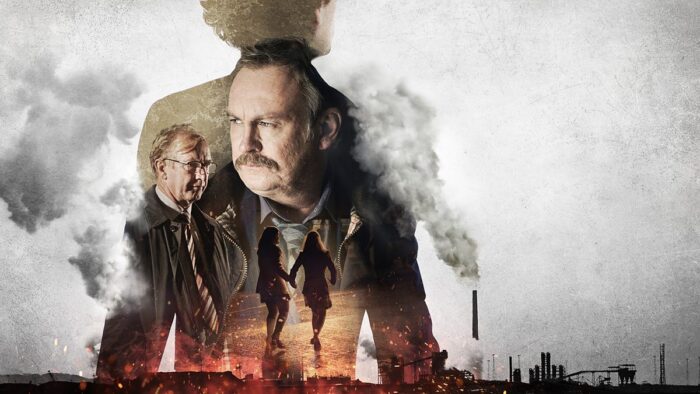True Crime Tuesdays: Steeltown Murders
Review Overview
Sadness
9Sensitivity
9Speed
7Helen Archer | On 30, May 2023
In 1973, a Welsh community, still reeling from the murder of 16-year-old Sandra Newton, was sent into terror when two more teenagers, Pauline Floyd and Geraldine Hughes, were discovered, raped and beaten to death in a wooded area not far from Geraldine’s father’s place of work. Like Sandra, they had been enjoying a night out at a local dancehall, and hitched a ride home, but never made it. Their murderer went undetected until a cold case review was opened and breakthrough familial DNA evidence led cops to Wales’s first documented serial murderer. This four-part dramatisation, with an accompanying hour-long documentary, delves deep into both the 1973 and 2002 investigations, in an emotional yet restrained manner.
Written by Ed Whitmore and directed by Marc Evans – the team behind the recent Manhunt, which looked at the investigation into both Levi Bellfield and London’s “Night Stalker”, Delroy Grant – Steeltown Murders is a thoughtful, if slow-moving, dive into not only the detective work, but also the human impact of the murders and the lack of timely justice. Split into two distinct timelines – the original investigation and the cold case review – it stars Scott Arthur as the young DCI Paul Bethell, with Phillip Glennister taking up the reins in his 21st-century guise. Most of the action is seen through Bethell’s eyes, from his early obsession with the murder of Sandra to his certainty that the three murders are connected and his decades-long determination to find the culprit.
The drama does not, however, swerve the mistakes made by police, nor even Bethell’s certainty that Sandra’s stepfather, Dai Williams (Keith Allen), was to blame, and the impact those false assumptions had on the lives of the people it depicts. It is, too, a personal mission for Bethell’s partner Phil ‘Bach’ Rees (Sion Alun Davies / Steffan Rhodri), whose old school friend Jane was one of the victims of the killer, who raped numerous women before “graduating” to murder. Lisa Victoria’s performance as she gives a witness statement to the detectives serves as reminder of those survivors.
Survivor guilt is also examined through the character of Sita Anwar (Natasha Vasandani / Priyanga Burford), a fictionalised friend of the girls who was out with them on the night they were murdered, but who was dragged out of the pub by her strict father early on in the evening. Her complicated emotions – blaming both her father and herself – are challenging, as is her deep anger at the police force’s reaction after the first case was initially dropped. But the heart of the drama is in William Thomas’s performance as grieving father Denver Hughes, from his breakdown upon stumbling across the crime scene – the image of his murdered daughter burned in his brain – to his surge of grief three decades later, when he’s told that the culprit has been identified.
It’s all desperately, desperately sad, written and directed with true sensitivity. While the series demonstrates the pitfalls of depicting a rather dry, drawn-out investigation – the reams of paperwork, the mass DNA testings, the sheer number of men who had to be eliminated from the inquiry – its portrayal of a community, and the personal toll it took on those involved, is pitch-perfect in its pathos.
















